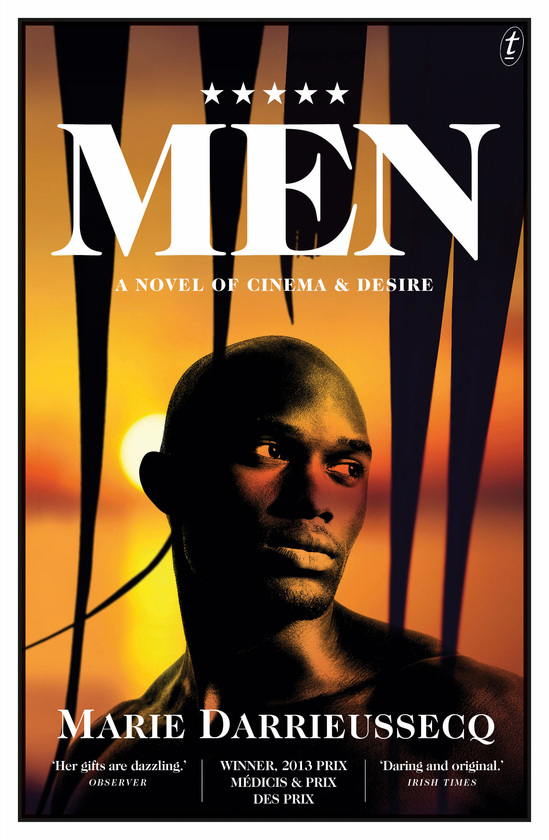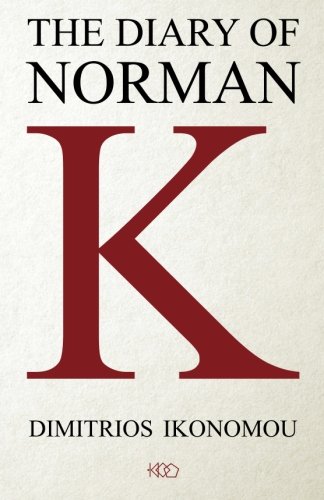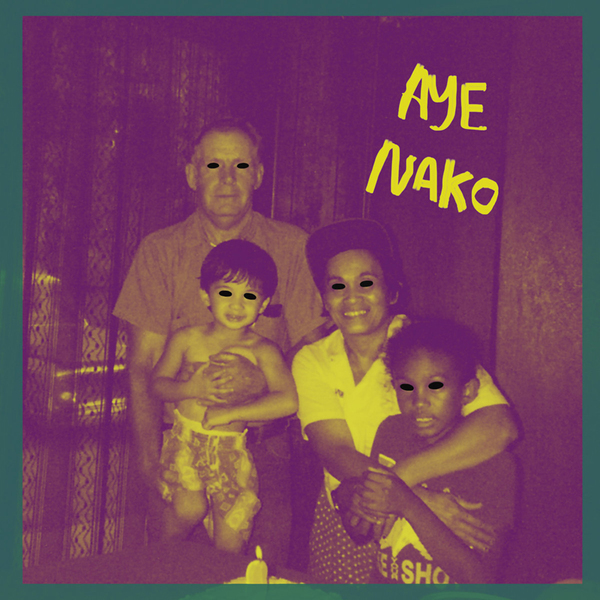In this special “on location” Sydney Writers Festival show, Vivian Gornick reads from and talks about the writing of her latest book The Odd Woman and the City, about the nature (and freedom) of “oddness”, about the joy and vitality…
Author:
Interview with Marie Darrieussecq
 I caught up with Marie Darrieussecq at the Sydney Writers Festival and we talked about such things as her latest novel Men, her characters Solange and Kouhouesso, on the glitz of the city and being an outsider, on passion vs love, her research process, on finding the right voice, and lots more.
I caught up with Marie Darrieussecq at the Sydney Writers Festival and we talked about such things as her latest novel Men, her characters Solange and Kouhouesso, on the glitz of the city and being an outsider, on passion vs love, her research process, on finding the right voice, and lots more.
A review of Men by Marie Darrieussecq
 Solange’s journey is one that takes her into her own heart of darkness, where she finds her limitations, her humiliations and restrictions, and the cultural, political, gendered and racial stereotypes through which she has defined herself. Throughout the novel she begins to unravel these, unwinding herself slowly until she is temporarily removed altogether as subject.
Solange’s journey is one that takes her into her own heart of darkness, where she finds her limitations, her humiliations and restrictions, and the cultural, political, gendered and racial stereotypes through which she has defined herself. Throughout the novel she begins to unravel these, unwinding herself slowly until she is temporarily removed altogether as subject.
A review of The Diary of Norman K by Dimitrios Ikonomou
 It takes strength of character to pursue, and create, human wretchedness in all its shapes for 360 pages. Like many unreliable narrators before him, Norman K ranges from obnoxious to villainous in his pretension, and The Diary of Norman K shows how uniquely we puts on airs, down to a style of speech best described by his “friend” Russell as “an Elizabethan aristocrat who had just woken up from a two-hundred-year coma.
It takes strength of character to pursue, and create, human wretchedness in all its shapes for 360 pages. Like many unreliable narrators before him, Norman K ranges from obnoxious to villainous in his pretension, and The Diary of Norman K shows how uniquely we puts on airs, down to a style of speech best described by his “friend” Russell as “an Elizabethan aristocrat who had just woken up from a two-hundred-year coma.
Dimitrios Ikonomou reads from and chats about The Diary of Norman K
Author and scultor Dimitrios Ikonomou reads from his new novel The Diary of Norman K, and chats with Justin Goodman about his book and its origins, his characters, on having an unreliable narrator on an unreliable journey, on meta-fiction, on…
A review of The Odd Woman and the City by Vivian Gornick
 What we’re celebrating most of all in The Odd Woman and the City, is our mutual humanity: all those wonderful discordant notes, all of the flaws, and all of our failures. We love, we lose, and in these gaps, in these surprises, we make our art, our lives, our meaning.
What we’re celebrating most of all in The Odd Woman and the City, is our mutual humanity: all those wonderful discordant notes, all of the flaws, and all of our failures. We love, we lose, and in these gaps, in these surprises, we make our art, our lives, our meaning.
A review of Good Globe by Shelby Simpson
 Simpson’s writing style is informal and conversational—the entire book reads like a girlfriend recounting tales of her latest travel adventures over a few cocktails on a night out. The way Simpson tells it, hopping on a plane to an exotic locale is No Big Deal—if you do it right. She stresses that traveling takes some advance budgeting and planning, but when you reach your destination, there’s a lot to be said for taking each day as it comes.
Simpson’s writing style is informal and conversational—the entire book reads like a girlfriend recounting tales of her latest travel adventures over a few cocktails on a night out. The way Simpson tells it, hopping on a plane to an exotic locale is No Big Deal—if you do it right. She stresses that traveling takes some advance budgeting and planning, but when you reach your destination, there’s a lot to be said for taking each day as it comes.
A review of The Bricks that Build the Houses by Kate Tempest
 Beneath the fun, fast, and well-plotted story, is a deep poetic exploration of yearning, creativity, and the constrictions of poverty. The characters live between pulses of transcendence that take place as they struggle to create meaning from their hand-to-mouth lives.
Beneath the fun, fast, and well-plotted story, is a deep poetic exploration of yearning, creativity, and the constrictions of poverty. The characters live between pulses of transcendence that take place as they struggle to create meaning from their hand-to-mouth lives.
A review of He Runs the Moon by Wendy Brandmark
 Themes of identity and belonging disturb the calm surface of Wendy Brandmark’s collection of short stories, which are set in Denver, New York and Boston in the 1950s, 1960s and 1970s. Many of the stories concern characters who have been displaced geographically and emotionally: young or old, successful or unsuccessful, their lives have slipped their moorings.
Themes of identity and belonging disturb the calm surface of Wendy Brandmark’s collection of short stories, which are set in Denver, New York and Boston in the 1950s, 1960s and 1970s. Many of the stories concern characters who have been displaced geographically and emotionally: young or old, successful or unsuccessful, their lives have slipped their moorings.
In Lust We Trust: The Blackest Eye by the music band Aye Nako
 Every generation asks and answers its own questions—and those become culture, history. Aye Nako’s The Blackest Eye considers how matters of self are shaped by world matters—especially regarding class, race, gender, and sexuality. “Leaving the Body” has a fast, thrashing introduction, churning, dense, spinning, with lyrics in which a narrator recognizes bad influence but also claims her own spoilage.
Every generation asks and answers its own questions—and those become culture, history. Aye Nako’s The Blackest Eye considers how matters of self are shaped by world matters—especially regarding class, race, gender, and sexuality. “Leaving the Body” has a fast, thrashing introduction, churning, dense, spinning, with lyrics in which a narrator recognizes bad influence but also claims her own spoilage.